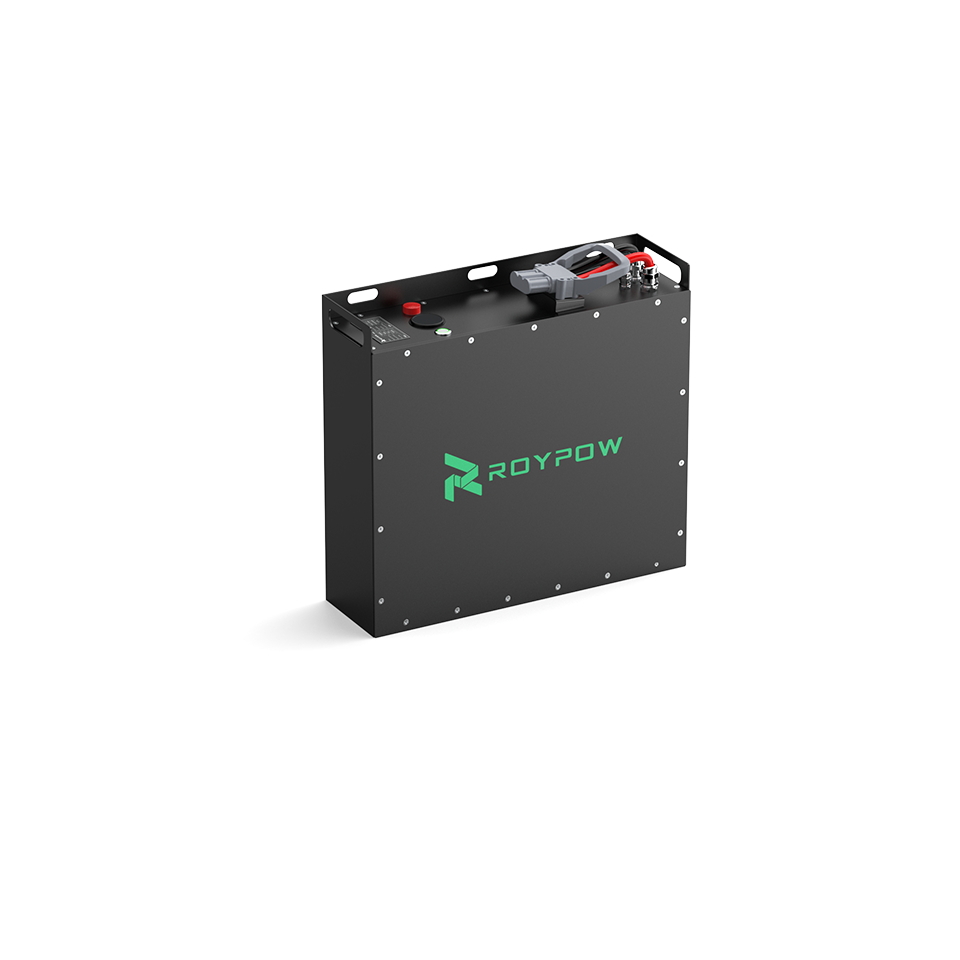-

24V 100Ah Forklift Battery
24V 100Ah Forklift Battery
F24100M
-

24V 150Ah LiFePO4 Forklift Battery
24V 150Ah LiFePO4 Forklift Battery
F24150L
-

24V 560Ah Lithium Forklift Battery
24V 560Ah Lithium Forklift Battery
F24560L
-

24V 150Ah LiFePO4 Forklift Battery
24V 150Ah LiFePO4 Forklift Battery
F24150Q
-

24V 280Ah LiFePO4 Forklift Battery
24V 280Ah LiFePO4 Forklift Battery
F24280F-A
-

24V 230Ah LiFePO4 Forklift Battery
24V 230Ah LiFePO4 Forklift Battery
F24230Y
-

24V 560Ah Lithium Forklift Battery
24V 560Ah Lithium Forklift Battery
F24560P
-

24V 160Ah Lithium-ion Forklift Battery
24V 160Ah Lithium-ion Forklift Battery
F24160
-
1. How Long Does a 24V Forklift Battery Last?
+ROYPOW 24V forklift batteries support up to 10 years of design life and over 3,500 times of cycle life. Treating the forklift battery right with proper care and maintenance will ensure a battery will reach its optimal lifespan or even further.
-
2. 24V Forklift Battery Maintenance: Essential Tips for Maximizing Battery Life
+To maximize the lifespan of a 24V forklift battery, follow these essential maintenance tips:
- Proper charging: Always use the correct charger designed for your 24V battery. Overcharging can shorten battery life, so monitor the charging cycle.
- Clean battery terminals: Regularly clean the battery terminals to prevent corrosion, which can lead to poor connections and reduced efficiency.
- Proper storage: If the forklift will be unused for a long period, store the battery in a dry, cool place.
- Temperature control: Keep the battery in a cool environment. High temperatures can significantly reduce the lifespan of a 24V forklift battery. Avoid charging in extreme heat or cold conditions.
By following these maintenance practices, you can ensure optimal performance and extend the lifespan of your 24V forklift battery, reducing costs and downtime.
-
3. How to Choose the Right 24V Forklift Battery: A Complete Buyer’s Guide
+When choosing the right 24V forklift battery, consider factors like battery type, capacity, and lifespan. Compared with lead-acid batteries, lithium-ion batteries are pricier upfront but have a longer lifespan (7-10 years), require little to no maintenance, and offer faster charging. The battery’s amp-hour (Ah) rating should match your forklift’s needs, providing sufficient runtime for your operations. Ensure the battery is compatible with your forklift’s 24V system. Additionally, think about the total cost of ownership, factoring in both initial price and long-term maintenance costs.
-
4. Lead-Acid vs. Lithium-Ion: Which 24V Forklift Battery is Better?
+Lead-acid batteries are cheaper upfront but require regular maintenance and have a shorter lifespan (3-5 years). They’re ideal for less demanding operations. Lithium-ion batteries cost more initially but last longer (7-10 years), need little maintenance, charge faster, and provide consistent power. They’re better for high-use environments, offering better efficiency and performance. If cost is a priority and maintenance is manageable, go for lead-acid; for long-term savings and ease of use, lithium-ion is the better choice.
-
5. Troubleshooting Common Issues with 24V Forklift Batteries
+Here are some common problems with the 24V forklift batteries and solutions:
- Battery not charging: Ensure the charger is properly connected, the outlet is working, and the charger is compatible with the battery. Check for any visible damage to the cables or connectors.
- Short battery life: This could be due to overcharging or deep discharging. Avoid letting the battery discharge below 20%. For lead-acid batteries, regularly water them and perform equalization charging.
- Slow or weak performance: If the forklift is sluggish, the battery may be undercharged or damaged. Check the battery’s charge level, and if performance doesn’t improve after a full charge, consider replacing the battery.
Regular maintenance and proper usage can help prevent most of these issues and extend the life of your forklift battery. It's crucial to have charging, inspections, maintenance, and repairs carried out by a well-trained and experienced professional.









